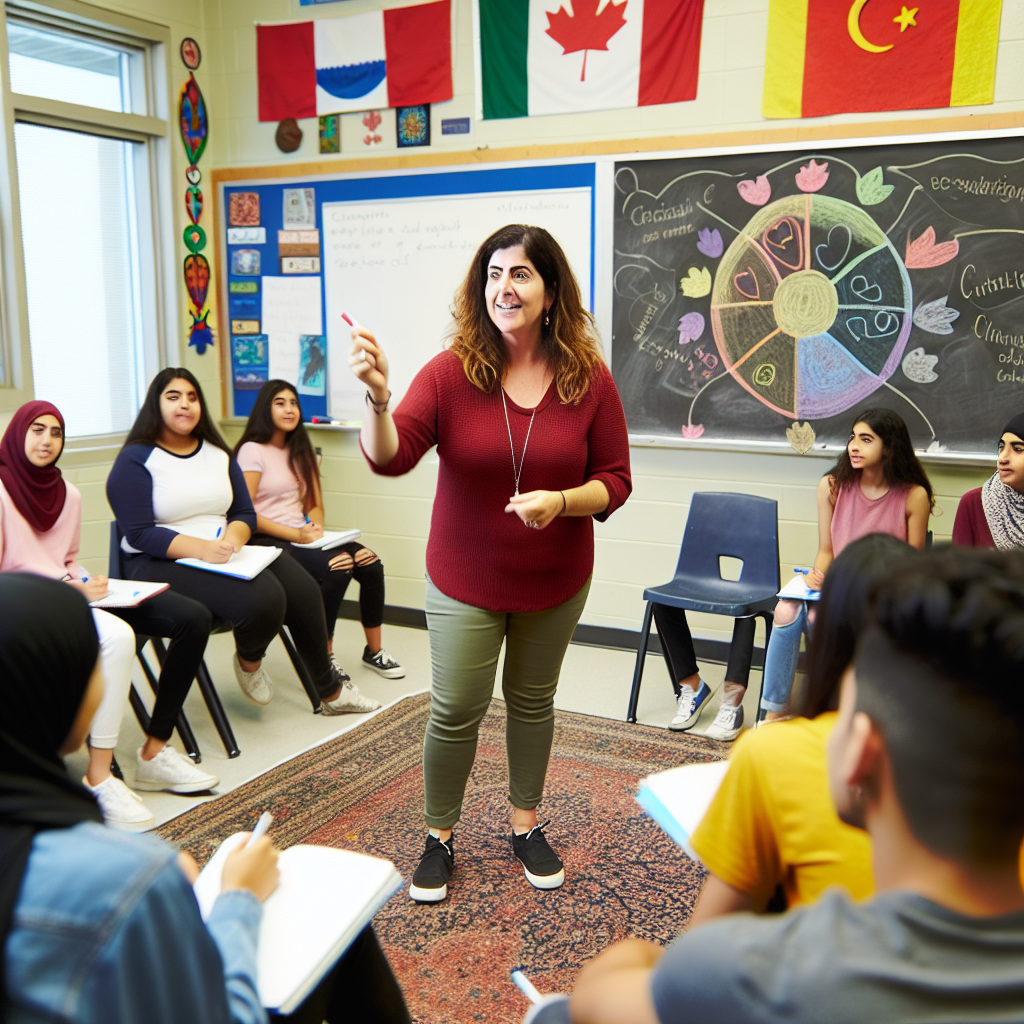Introduction to Youth Program Facilitation
Youth program facilitation involves guiding and managing activities for young people.
This role requires versatility and adaptability to meet diverse needs.
The primary goal is to empower youth and foster their personal growth.
Facilitators build safe and inclusive environments for all participants.
They engage youth through interactive and meaningful activities.
The role also involves collaboration with other staff and organizations.
Facilitators must communicate effectively with both youth and stakeholders.
Additionally, they evaluate program effectiveness and make improvements.
Understanding the developmental stages of youth is essential for facilitators.
Core Responsibilities
The first responsibility includes planning and organizing programs.
Facilitators assess the needs and interests of the youth they serve.
They design activities that align with these identified needs.
Moreover, they must lead activities while ensuring participant engagement.
Monitoring student progress is a crucial part of this role.
Facilitators provide constructive feedback and guidance to youth.
Documenting program outcomes also plays a significant role in their duties.
This documentation helps secure funding and resources for future activities.
Essential Skills
Effective communication skills are vital for youth program facilitators.
Facilitators must convey information clearly to diverse audiences.
Strong interpersonal skills help to build trust with participants.
Additionally, problem-solving skills are essential for addressing challenges.
Facilitators should also possess organizational skills for multitasking.
A creative mindset supports the development of engaging activities.
Moreover, patience is necessary when working with youth of varying abilities.
Facilitators should demonstrate cultural competence to respect diversity.
Unlock Your Career Potential
Visualize a clear path to success with our tailored Career Consulting service. Personalized insights in just 1-3 days.
Get StartedKey Responsibilities of a Youth Program Facilitator
Planning and Organizing Activities
The facilitator designs engaging programs for youth participation.
They ensure activities align with the goals of the organization.
Additionally, they coordinate schedules for various events.
They also book necessary venues and resources.
Building Relationships
Establishing trust is crucial for effective youth engagement.
The facilitator cultivates positive relationships with participants.
They communicate openly to foster a supportive environment.
Furthermore, they connect with parents and guardians as necessary.
Providing Guidance and Support
The facilitator offers emotional and educational support to youth.
They help participants navigate personal and social challenges.
Moreover, they serve as role models, demonstrating positive behaviors.
Monitoring Progress
Tracking participants’ development is essential for program success.
The facilitator evaluates individual growth and group dynamics.
They utilize feedback to refine activities and approaches.
This continuous assessment informs future programming efforts.
Promoting Inclusivity
The facilitator ensures all voices are heard and valued.
They create a welcoming environment for diverse backgrounds.
Additionally, they tailor activities to meet varying needs.
This commitment fosters a sense of belonging among participants.
Collaborating with Team Members
The facilitator works closely with other staff and volunteers.
They share insights and strategies to enhance program delivery.
Furthermore, teamwork is vital for efficient problem-solving.
This collaboration improves overall program effectiveness.
Implementing Safety Protocols
Ensuring safety during activities is a top priority.
The facilitator follows established guidelines and protocols.
They promptly address any safety concerns that arise.
In doing so, they protect the wellbeing of all participants.
Essential Skills Required for Effective Facilitation
Communication Skills
Effective facilitators possess strong communication skills.
They can express ideas clearly and succinctly.
Active listening is also a critical component.
This allows them to understand participants’ needs.
Moreover, they must adjust their communication style as needed.
Interpersonal Skills
Interpersonal skills are vital for a youth program facilitator.
Building rapport helps create a positive environment.
Facilitators must foster inclusivity among participants.
This encourages open sharing of ideas and experiences.
Additionally, empathy plays a significant role in their interactions.
Organizational Skills
Strong organizational skills are essential for facilitators.
They must plan sessions effectively to meet goals.
Organizing materials and resources ahead of time is crucial.
This ensures smooth transitions during activities.
Moreover, they should be able to manage time efficiently.
Problem-Solving Abilities
Facilitators often face unexpected challenges.
Thus, problem-solving abilities are essential.
They must think critically to find solutions on the spot.
Moreover, they should encourage participants to contribute ideas.
This promotes collaborative problem-solving among youth.
Adaptability
Adaptability is another key skill for facilitators.
They must handle diverse participant backgrounds and needs.
This flexibility allows for more effective group management.
Facilitators should adjust plans based on group dynamics.
Additionally, they must remain calm under pressure.
Delve into the Subject: Skills Canadian Career Coaches Use to Empower Job Seekers
Engaging Youth: Techniques for Building Rapport
Understanding the Importance of Rapport
Building rapport is essential for effective youth programs.
When facilitators connect with participants, it enhances engagement.
Furthermore, strong rapport fosters a sense of trust and safety.
Active Listening Skills
Active listening is crucial in facilitating youth programs.
Maintain eye contact to show interest in what youth say.
Encourage participants to express their thoughts without interruption.
Reiterate their points to acknowledge their feelings and opinions.
This practice helps youth feel valued and heard.
Creating a Welcoming Environment
A welcoming environment encourages youth participation.
Use open body language to appear approachable and friendly.
Incorporate fun activities that promote interaction among participants.
Decorate the space with youth-friendly art and motivational posters.
Using Relatable Language
Speak in a language youth understand and connect with.
Avoid jargon that might alienate or confuse them.
Use humor to lighten the atmosphere and promote openness.
Share personal experiences that resonate with their lives.
Encouraging Participation
Encouraging participation helps youth feel more involved.
Ask open-ended questions to stimulate discussion and sharing.
Provide opportunities for youth to lead activities or discussions.
Recognize and celebrate their contributions during sessions.
Building Trust Over Time
Trust is built gradually through consistent interactions.
Be reliable and follow through on commitments to participants.
Share appropriate personal stories to enhance connection.
Create a safe space for youth to share their thoughts without judgment.
Gain More Insights: Exploring Career Paths for Instructional Designers in Canada
Program Planning and Implementation Strategies
Defining Program Goals
Start by identifying the objectives of the youth program.
Clearly outline what the program aims to achieve.
Engage with stakeholders to gather input on these goals.
Utilize feedback to refine the objectives further.
Ensure the goals align with the needs of the participants.
Developing a Curriculum
Create a curriculum that is age-appropriate and relevant.
Incorporate various teaching methods to accommodate different learning styles.
Include hands-on activities to promote engagement effectively.
Regularly review and update the curriculum as needed.
Gather feedback from participants on the curriculum’s effectiveness.
Resource Management
Identify the resources needed for program delivery.
Secure funding through grants, donations, or sponsorships.
Establish partnerships with local organizations for support.
Ensure all materials and equipment are accessible and in good condition.
Recruiting and Training Staff
Recruit skilled individuals who are passionate about youth work.
Provide comprehensive training for all team members.
Focus on building teamwork and communication skills.
Encourage staff to participate in ongoing professional development.
Implementing the Program
Launch the program according to the established timeline.
Maintain flexibility to address any unforeseen challenges.
Monitor participant engagement and progress closely.
Collect data to assess the program’s impact effectively.
Evaluating Program Success
Conduct regular evaluations to measure program effectiveness.
Use surveys and interviews to gather participant feedback.
Analyze data to identify areas for improvement.
Share findings with stakeholders to demonstrate impact.
Delve into the Subject: Education Requirements for Youth Program Facilitators

Monitoring and Evaluating Program Outcomes
Importance of Monitoring
Monitoring serves as a foundation for effective program management.
It helps identify areas that need improvement as well as those that succeed.
This process allows facilitators to adapt strategies in real-time.
Setting Clear Objectives
Clear objectives provide a roadmap for success.
These objectives should be specific, measurable, achievable, relevant, and time-bound.
Facilitators can use these criteria to gauge progress effectively.
Using Assessment Tools
Various assessment tools can help track program outcomes.
Surveys and questionnaires are useful for collecting feedback.
Observational checklists can provide valuable quantitative data.
Additionally, focus groups can explore participant experiences in depth.
Engaging Stakeholders
Engaging stakeholders ensures multiple perspectives are accounted for.
This involvement can deepen the understanding of program impact.
Facilitators should regularly communicate with stakeholders for insights.
Data Analysis Techniques
Data analysis is crucial for interpreting findings effectively.
Facilitators need to identify patterns and trends from collected data.
Using both qualitative and quantitative methods enhances understanding.
Reporting Outcomes
Regular reporting keeps everyone informed about progress.
Facilitators should share results with stakeholders in a transparent manner.
This promotes accountability and encourages continuous improvement.
Using Feedback for Improvement
Feedback is a vital component of program enhancement.
Facilitators should actively seek suggestions from participants.
This approach fosters a culture of openness and collaboration.
Adjustments based on feedback can lead to more effective programs.
Continuous Learning
Continuous learning ensures programs adapt to changing needs.
Facilitators should participate in workshops and training sessions.
This commitment to growth will enhance skill sets and strategies.
See Related Content: Exploring Career Coaching Services for Recent Canadian Grads
Conflict Resolution Skills in Youth Settings
Understanding Conflict Resolution
Conflict resolution entails addressing disputes effectively.
Youth program facilitators play a vital role in this process.
They help guide young individuals through conflicts.
This guidance promotes positive relationships among peers.
Core Skills for Effective Resolution
Active listening is essential for facilitators.
It allows them to understand the perspectives of all parties.
Moreover, empathy helps build trust during conflicts.
Facilitators must express genuine understanding of feelings.
Additionally, clear communication is crucial to resolving issues.
This means articulating thoughts and feelings respectfully.
Facilitators must also remain neutral and objective.
This neutrality fosters an unbiased environment for dialogue.
Strategies for Conflict Resolution
Encouraging open dialogue is an effective strategy.
Facilitators should create safe spaces for discussions.
Role-play can also help by illustrating various perspectives.
This technique allows participants to understand different viewpoints.
Additionally, brainstorming solutions together promotes collaboration.
Collaborative solutions often lead to better outcomes.
The Importance of Follow-Up
After conflicts are resolved, follow-up is crucial.
This ensures that relationships remain on a positive track.
Facilitators should check in with participants regularly.
These check-ins can reinforce conflict resolution skills.
They also demonstrate ongoing support for the youth involved.
The Role of Communication in Youth Facilitation
Importance of Clear Communication
Effective communication establishes a foundation for strong relationships with youth.
It allows facilitators to convey ideas and expectations clearly.
Consequently, clear communication minimizes misunderstandings.
Moreover, it encourages open dialogue and trust between facilitators and participants.
Adapting Communication Styles
Facilitators must adapt their communication styles to meet the needs of diverse youth.
This flexibility fosters an inclusive environment where everyone feels valued.
For instance, using relatable language can enhance engagement.
Furthermore, facilitators should be observant of non-verbal cues.
This awareness helps in adjusting communication approaches effectively.
Encouraging Participation
Facilitators should use various techniques to encourage participation.
Asking open-ended questions promotes discussion and critical thinking.
Additionally, incorporating group activities helps build a sense of community.
Facilitators can also provide positive reinforcement to motivate youth.
Active Listening Skills
Active listening is a crucial skill for effective youth facilitation.
It involves fully concentrating on the speaker’s message without judgment.
This practice validates participants and encourages them to share more.
Additionally, summarizing key points shows understanding and respect.
As a result, youth feel heard and appreciated in the facilitation process.
Feedback and Reflection
Providing constructive feedback is essential for youth development.
Facilitators should offer specific praise and areas for improvement regularly.
Moreover, holding reflective sessions encourages youth to think critically about their experiences.
This practice fosters personal growth and enhances self-awareness.
Consequently, it prepares youth for future challenges both in and out of the program.
Additional Resources
Understanding the delivery of a Canadian-based after-school STEM …
Process and experience of youth researchers within a Health …




